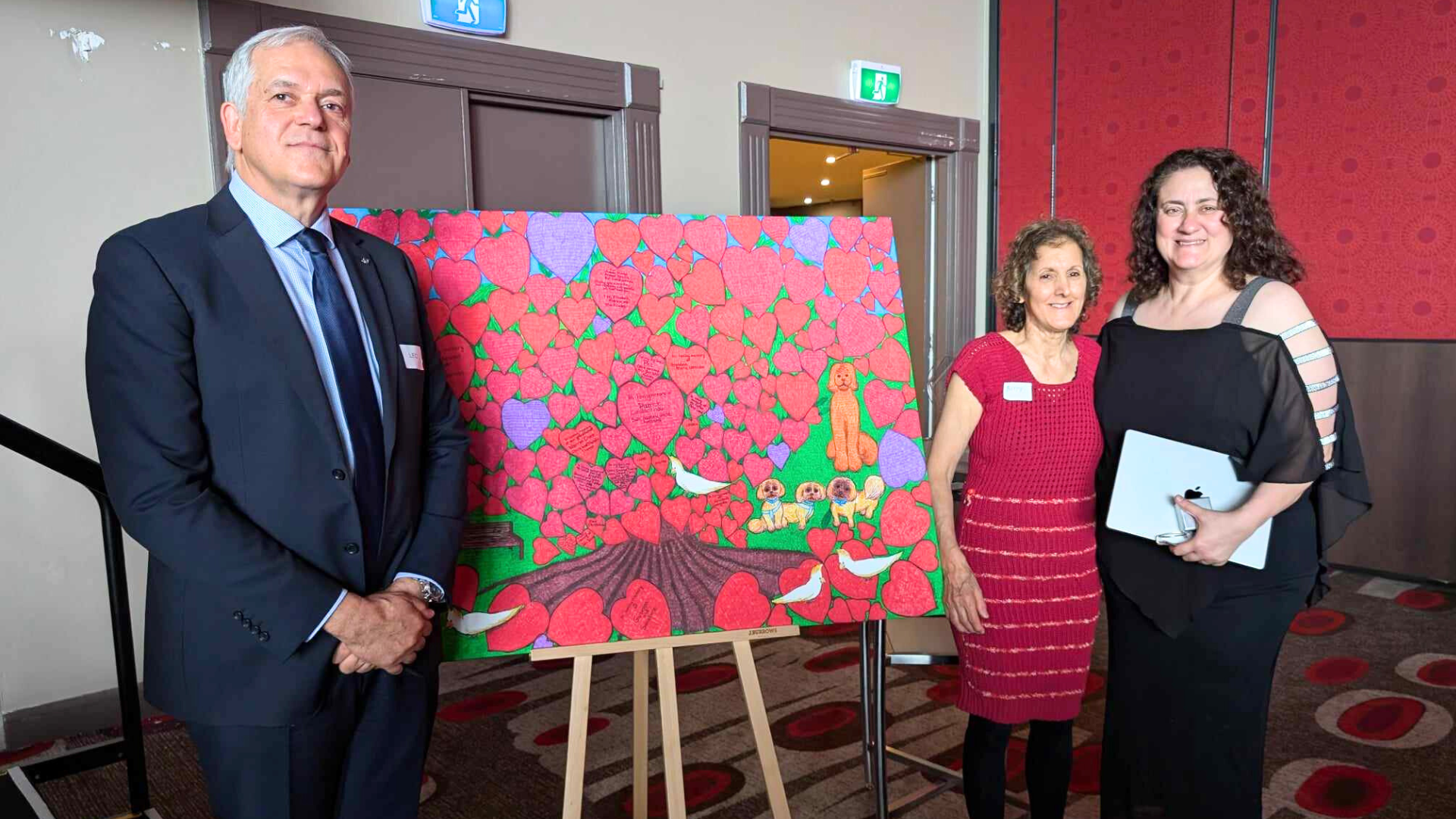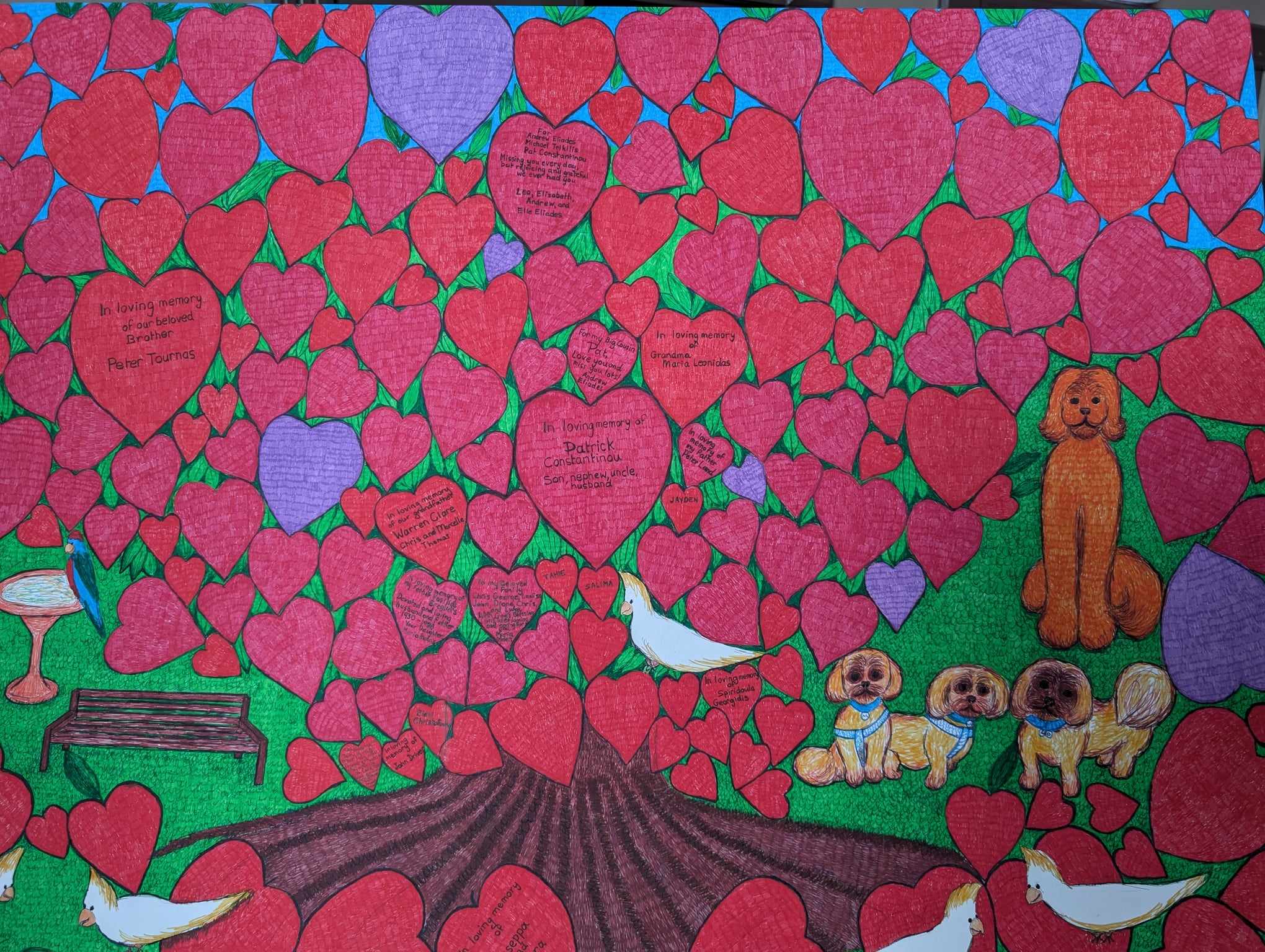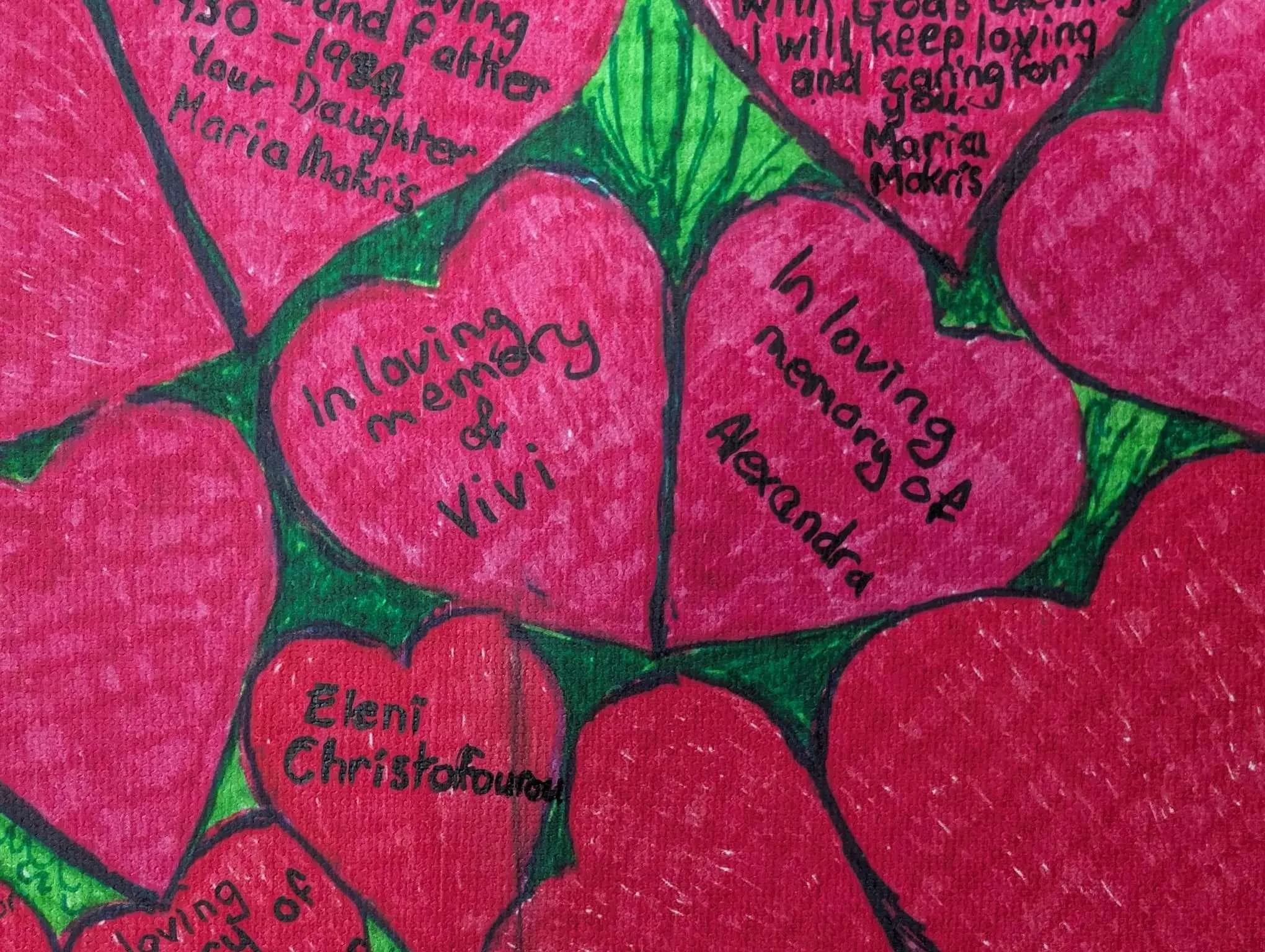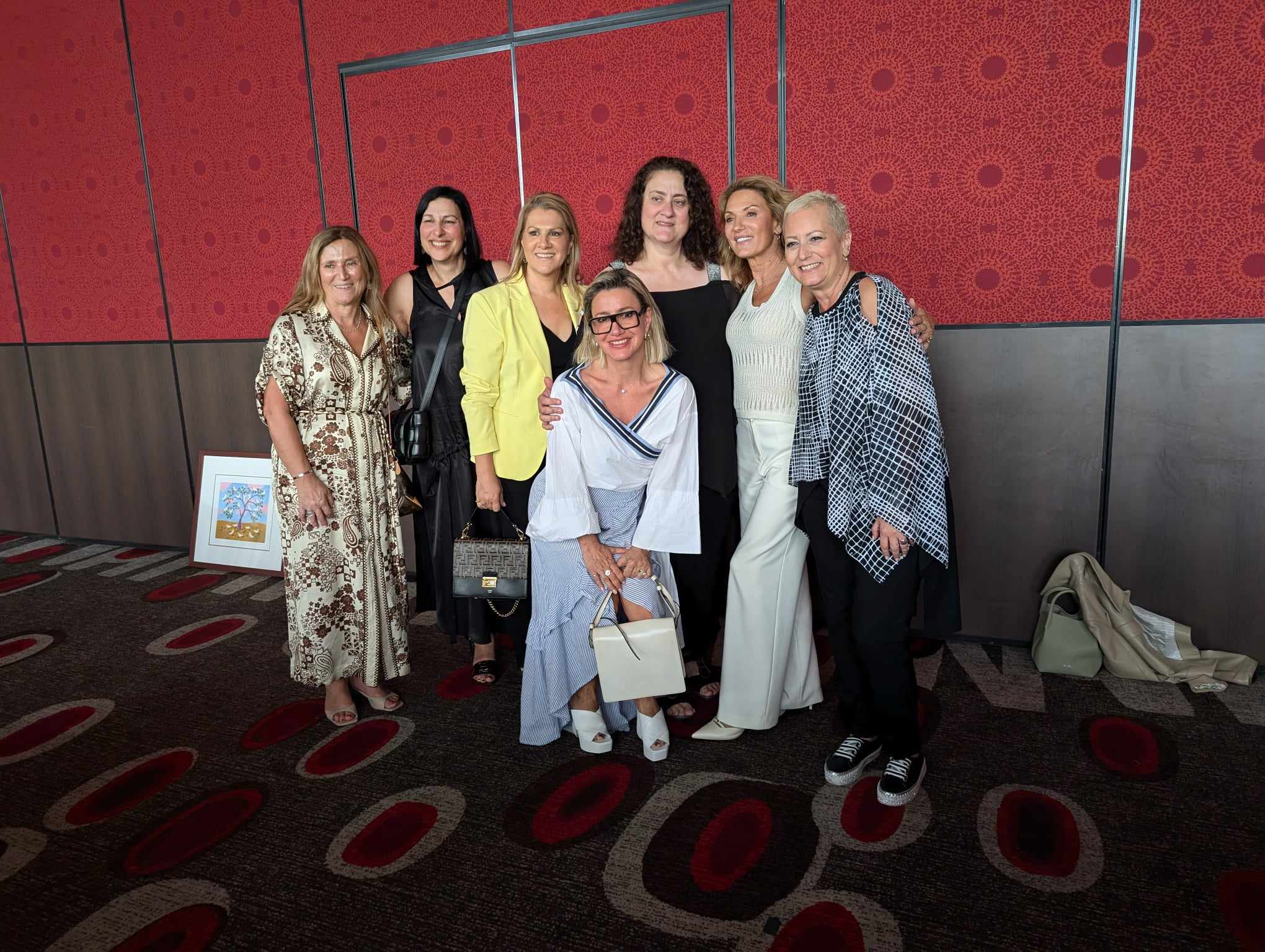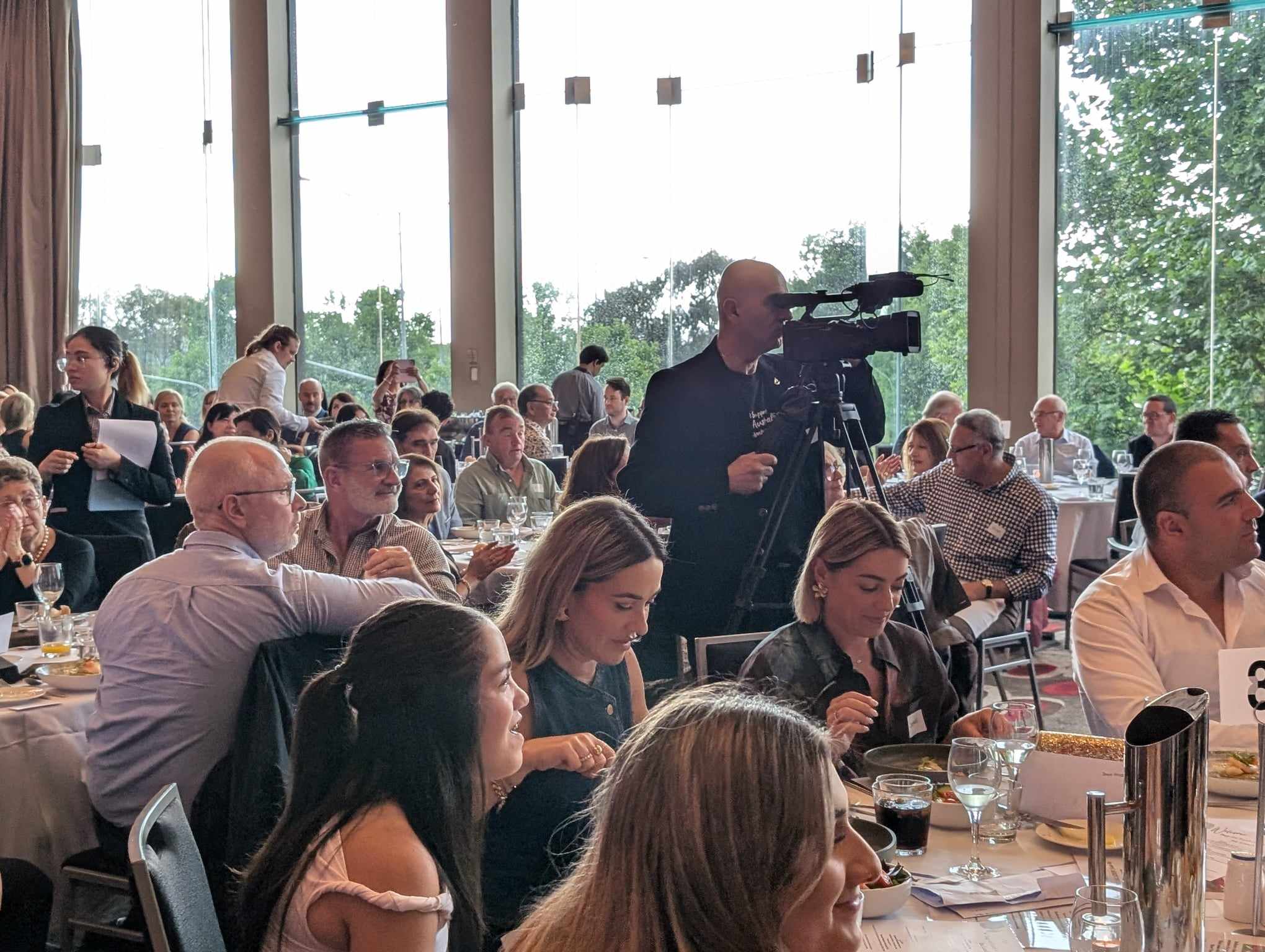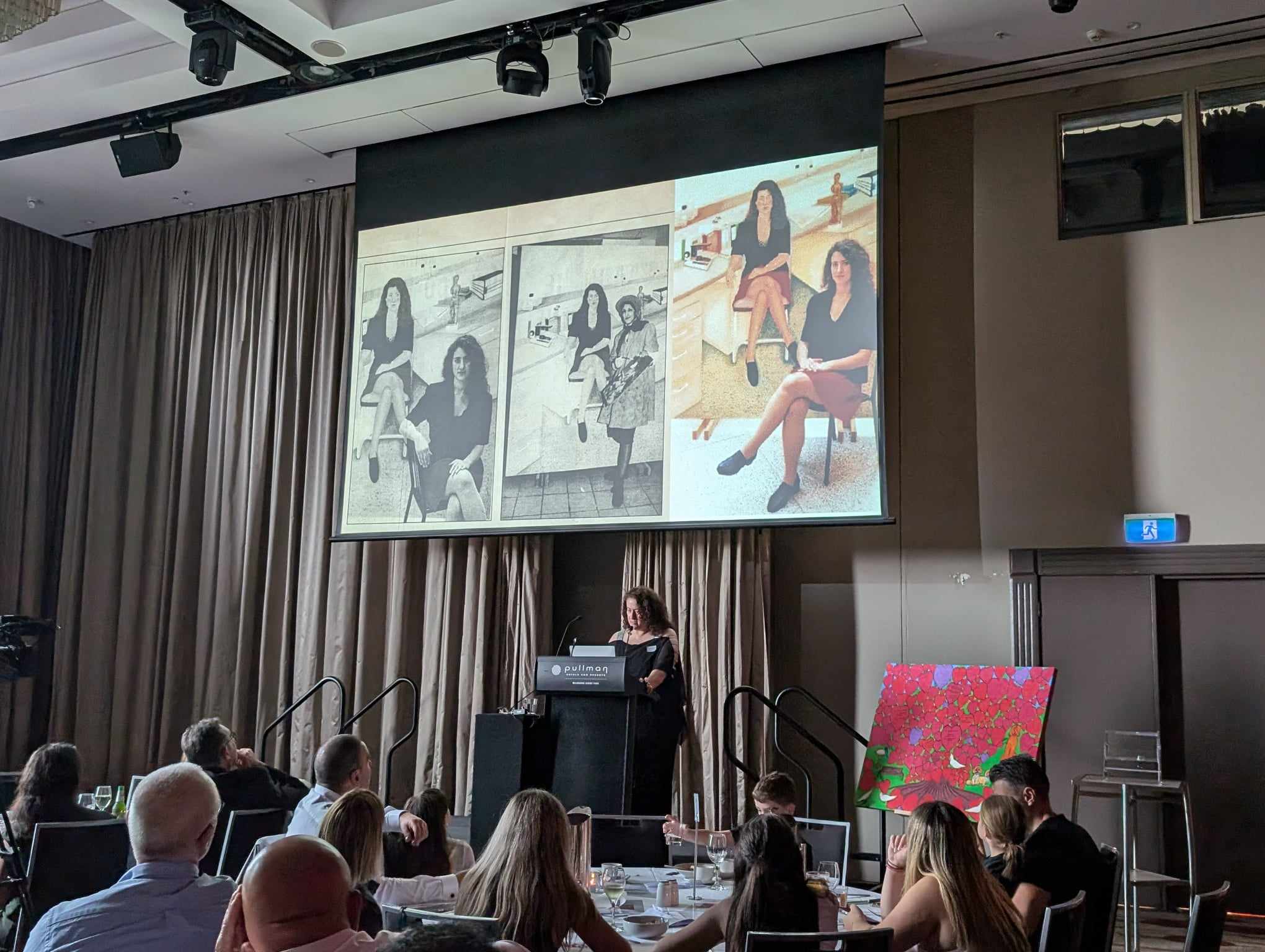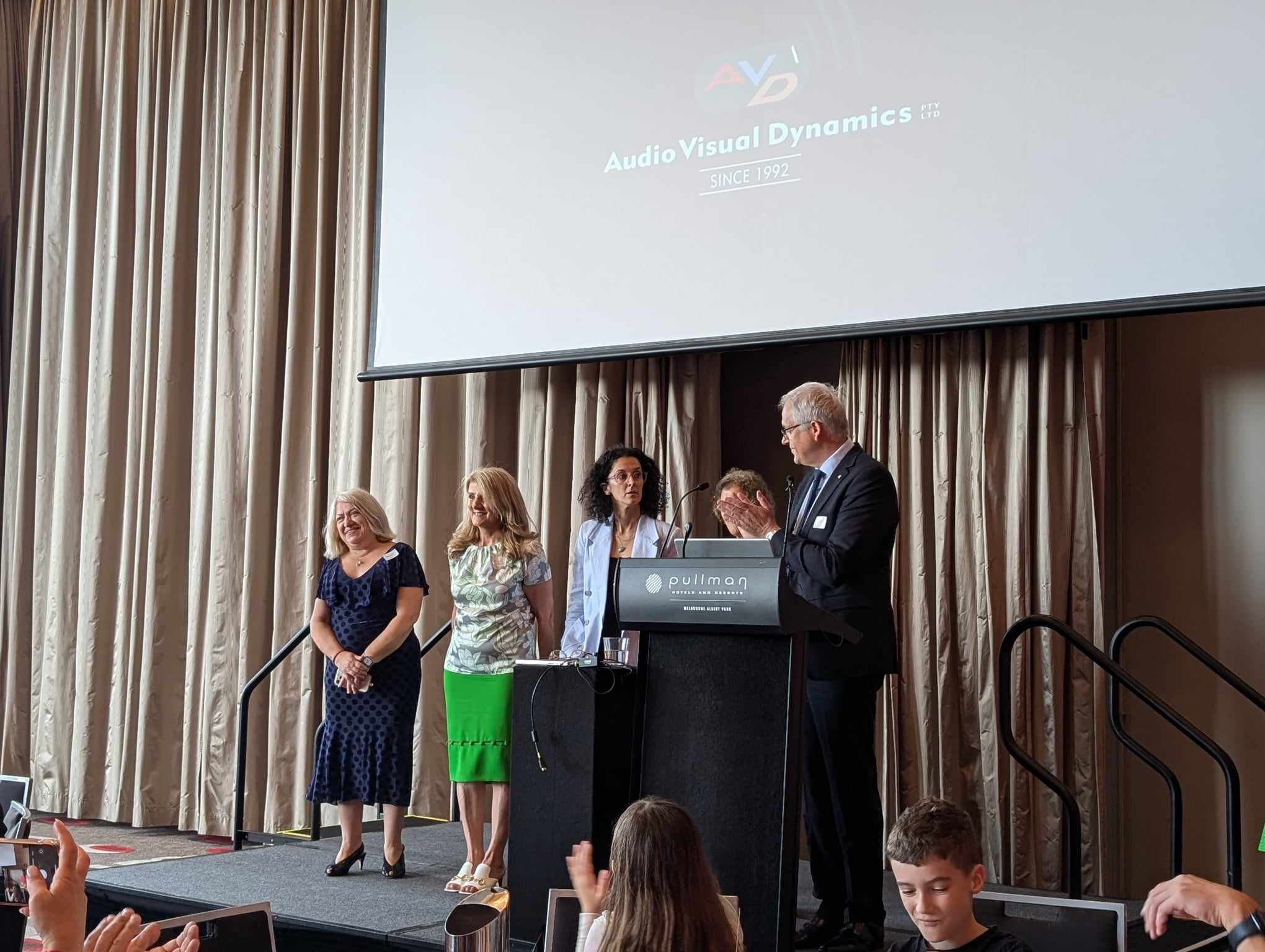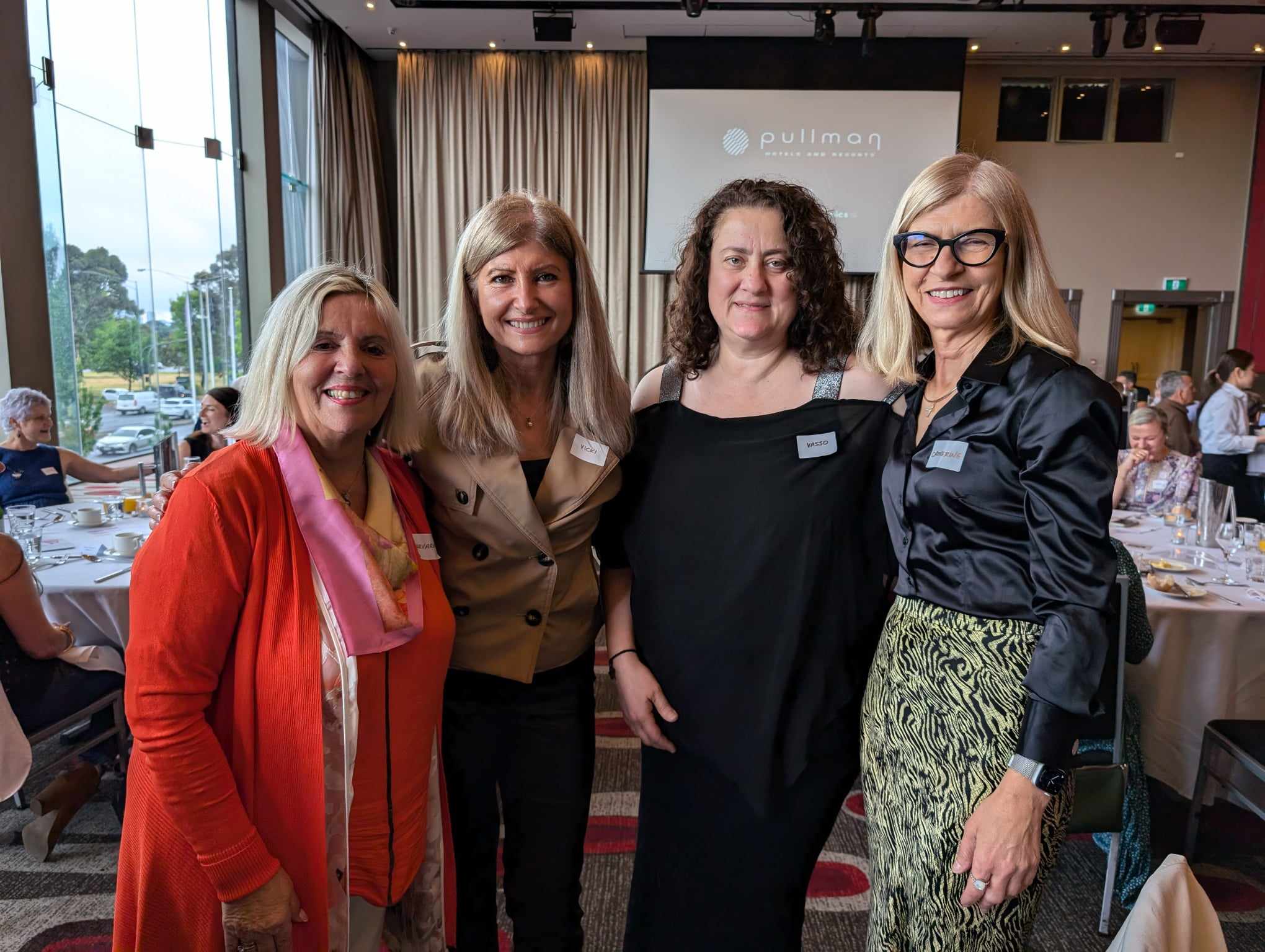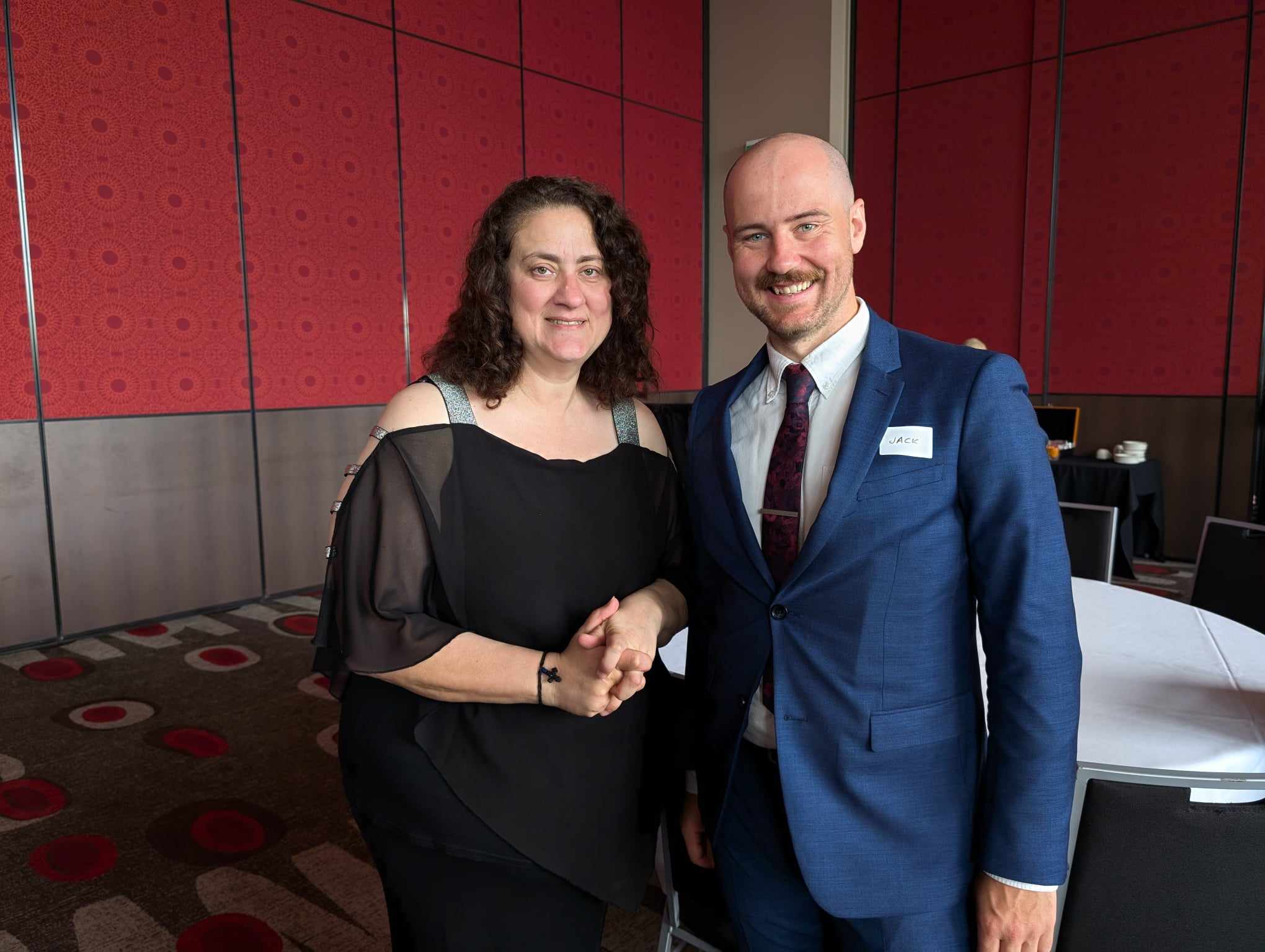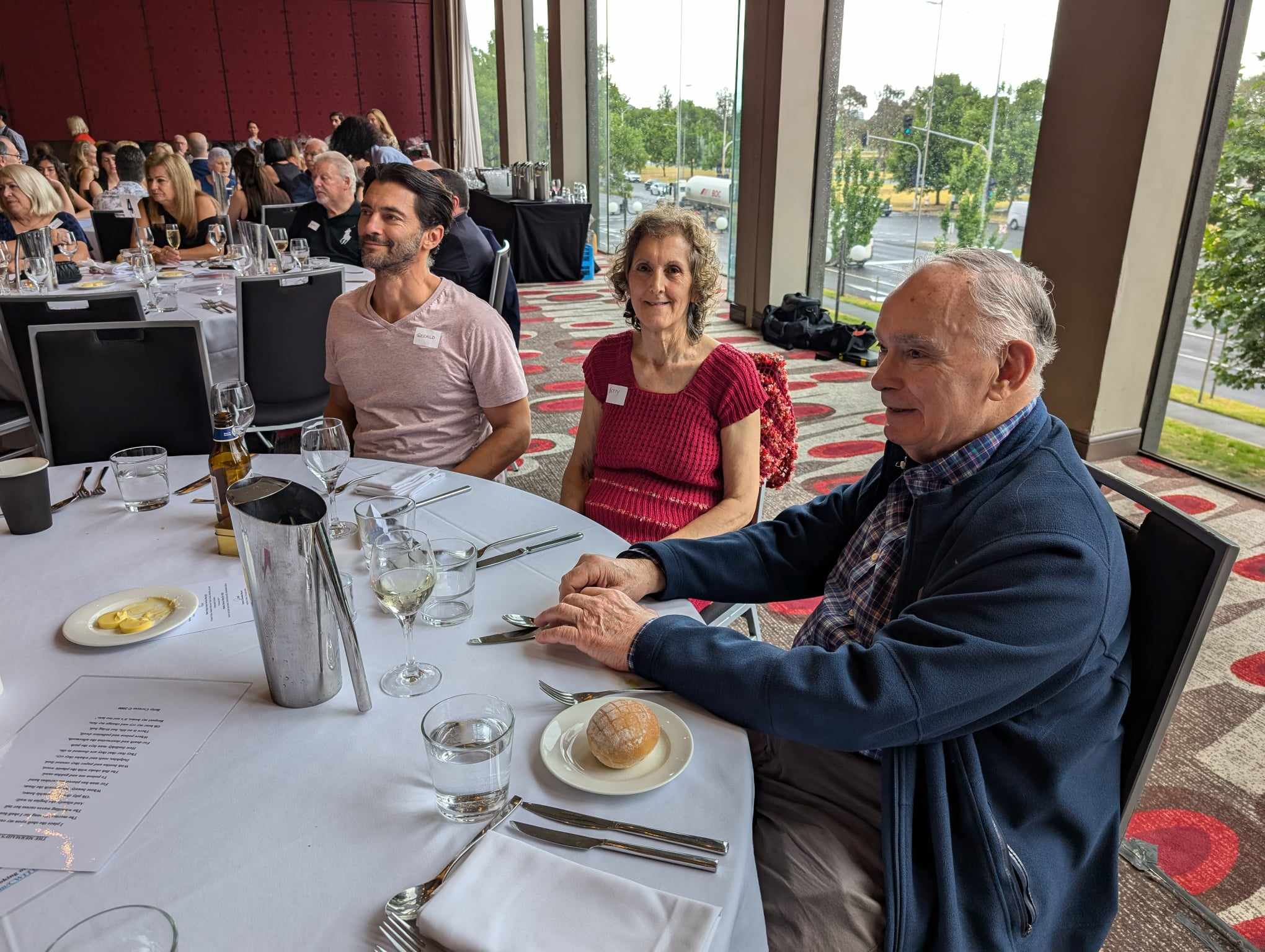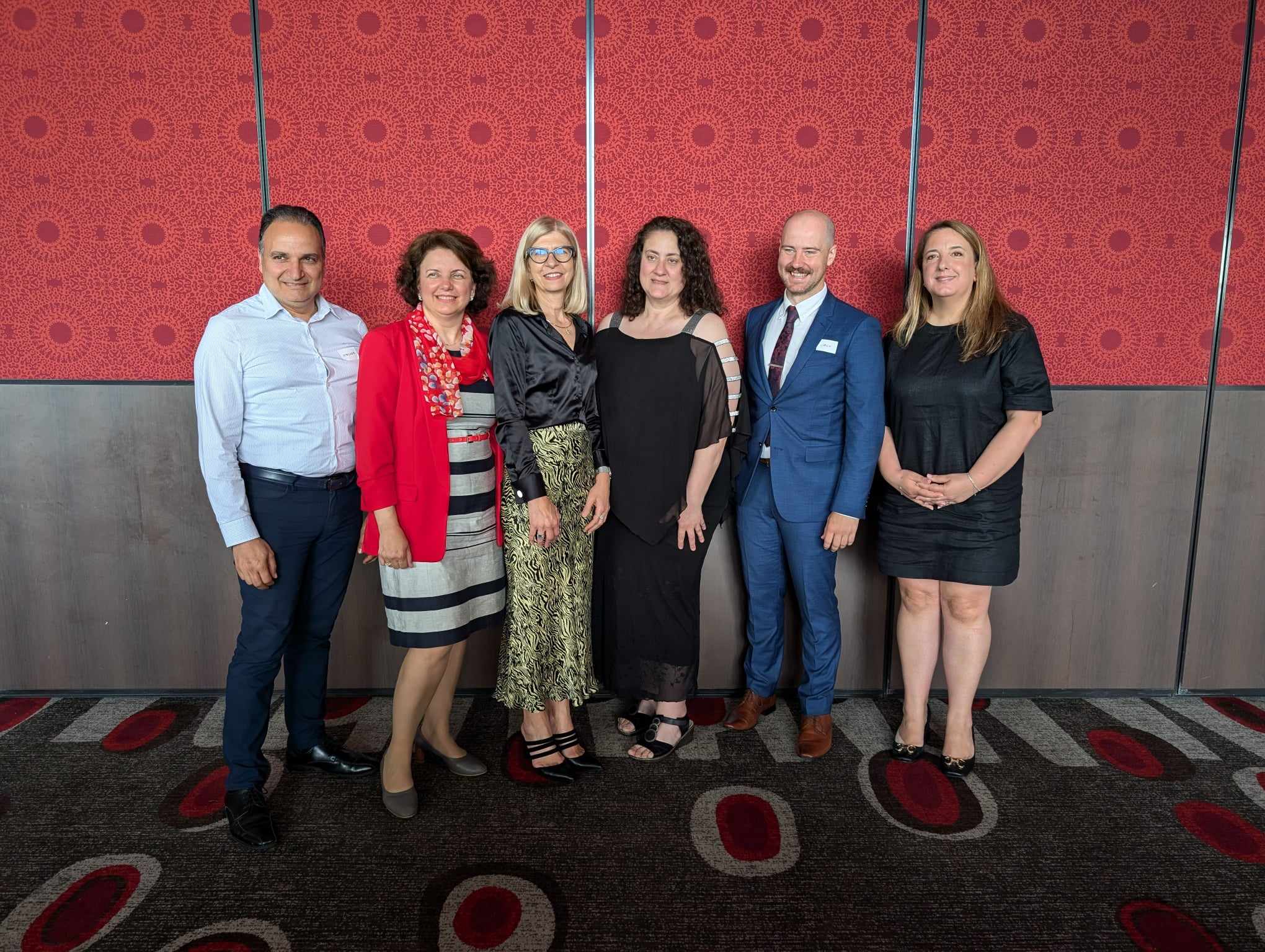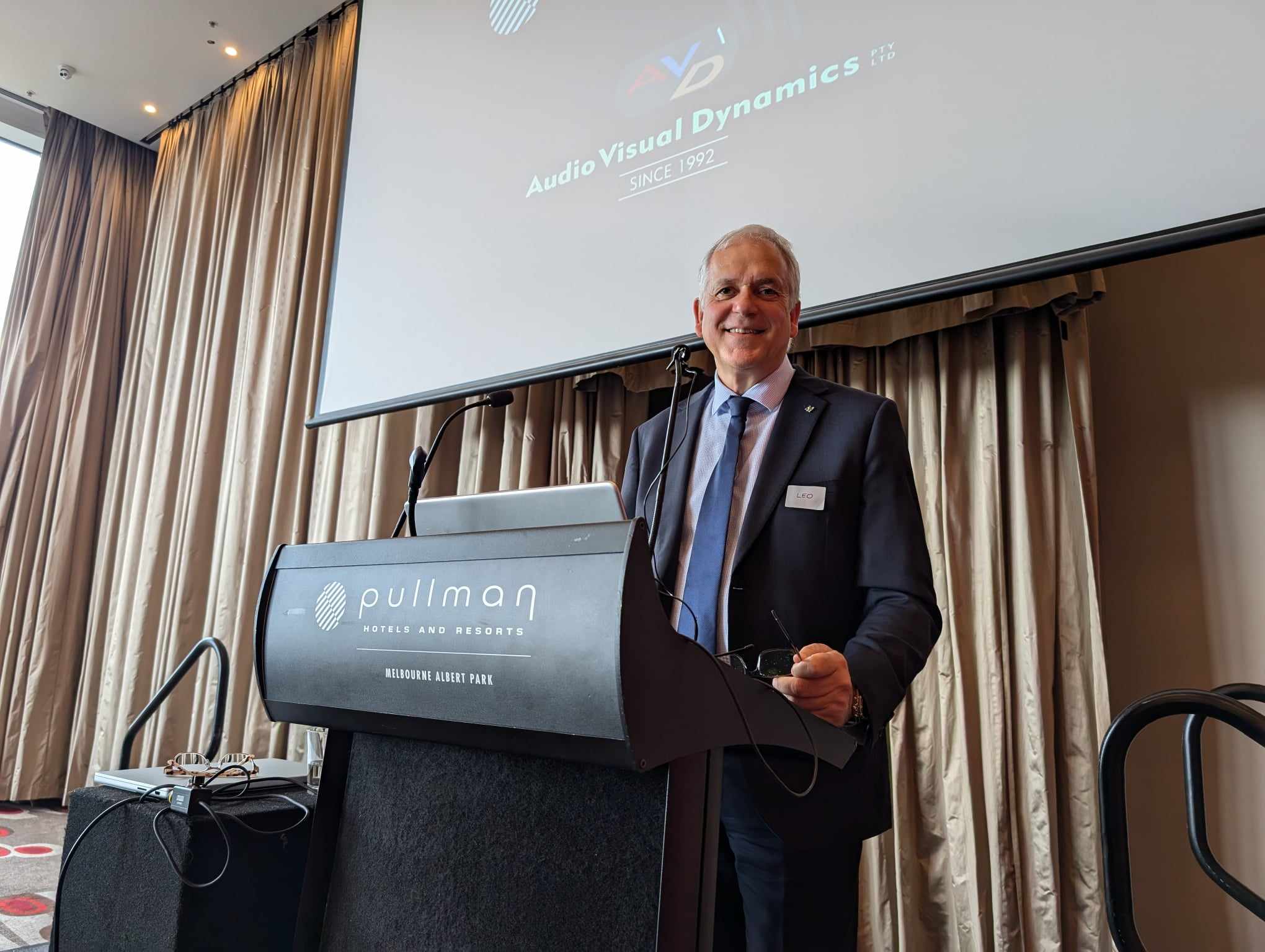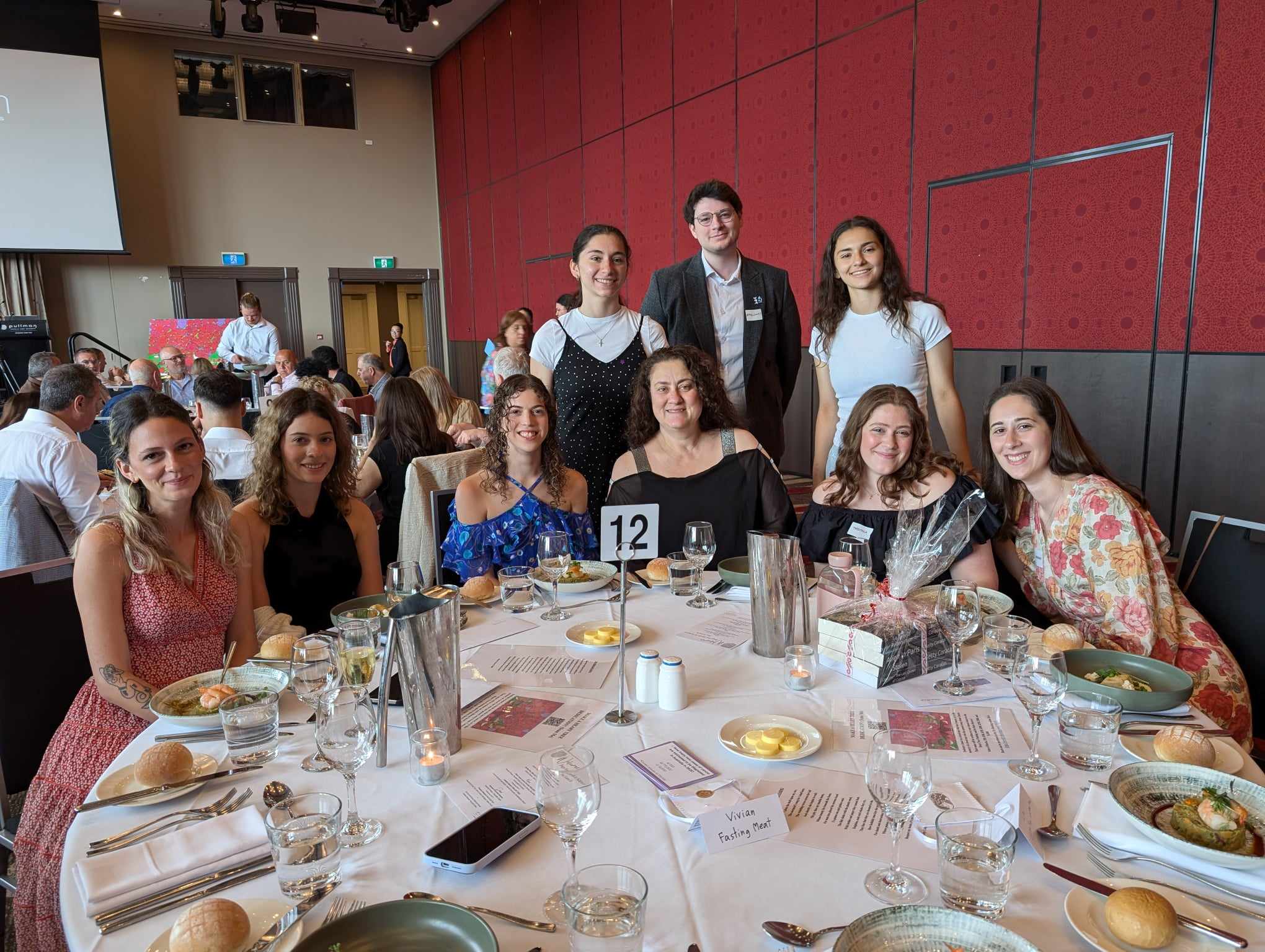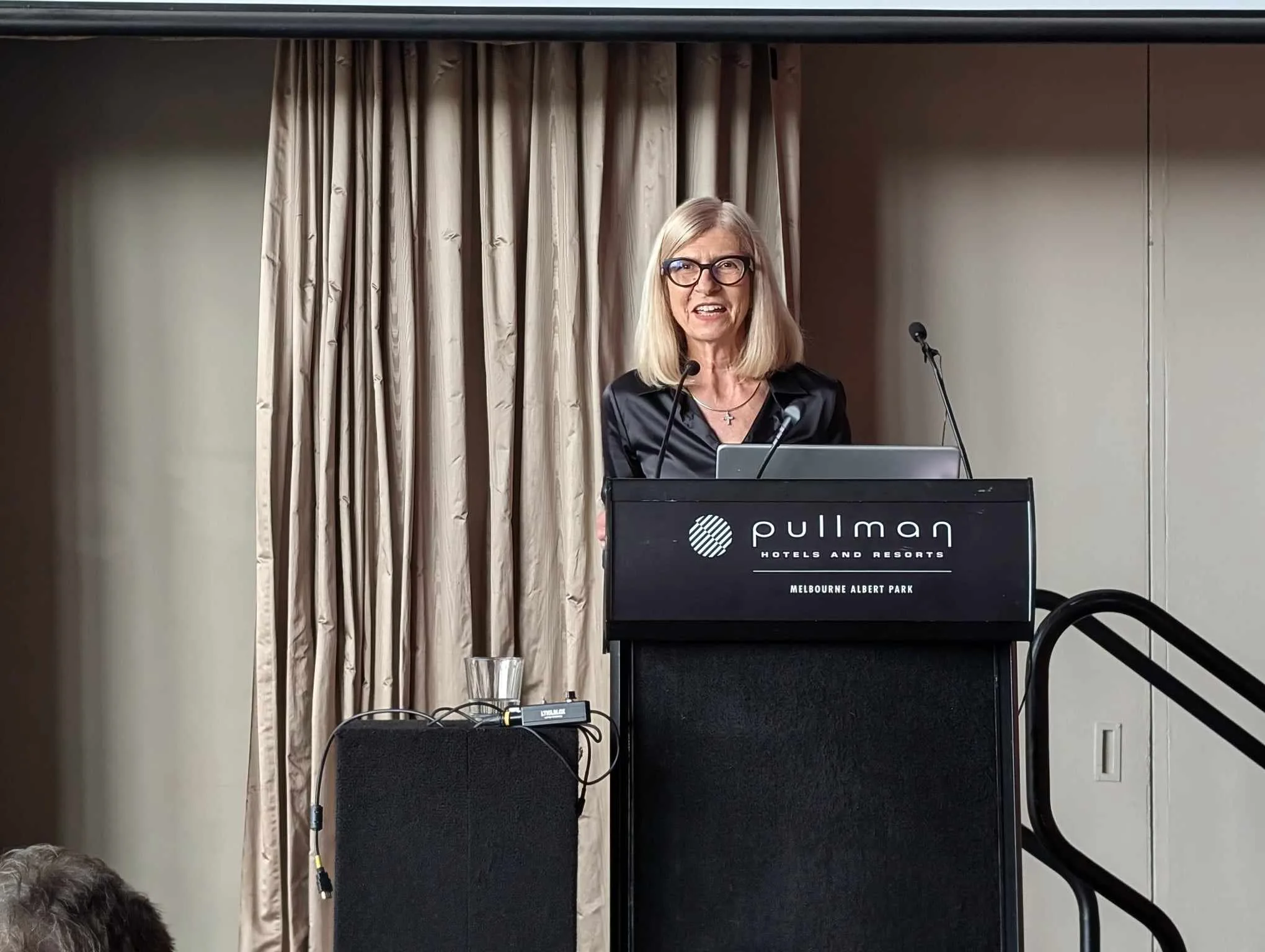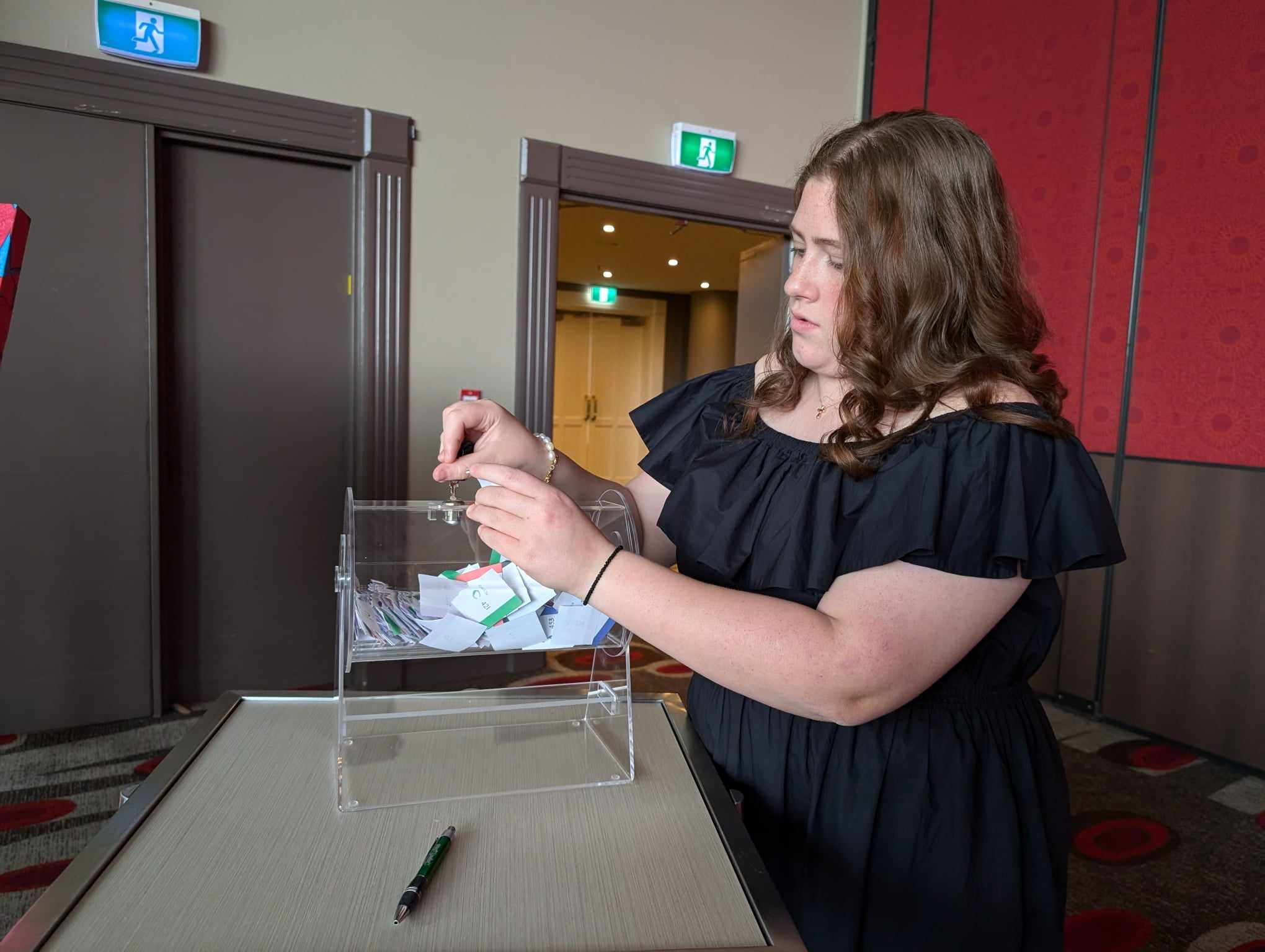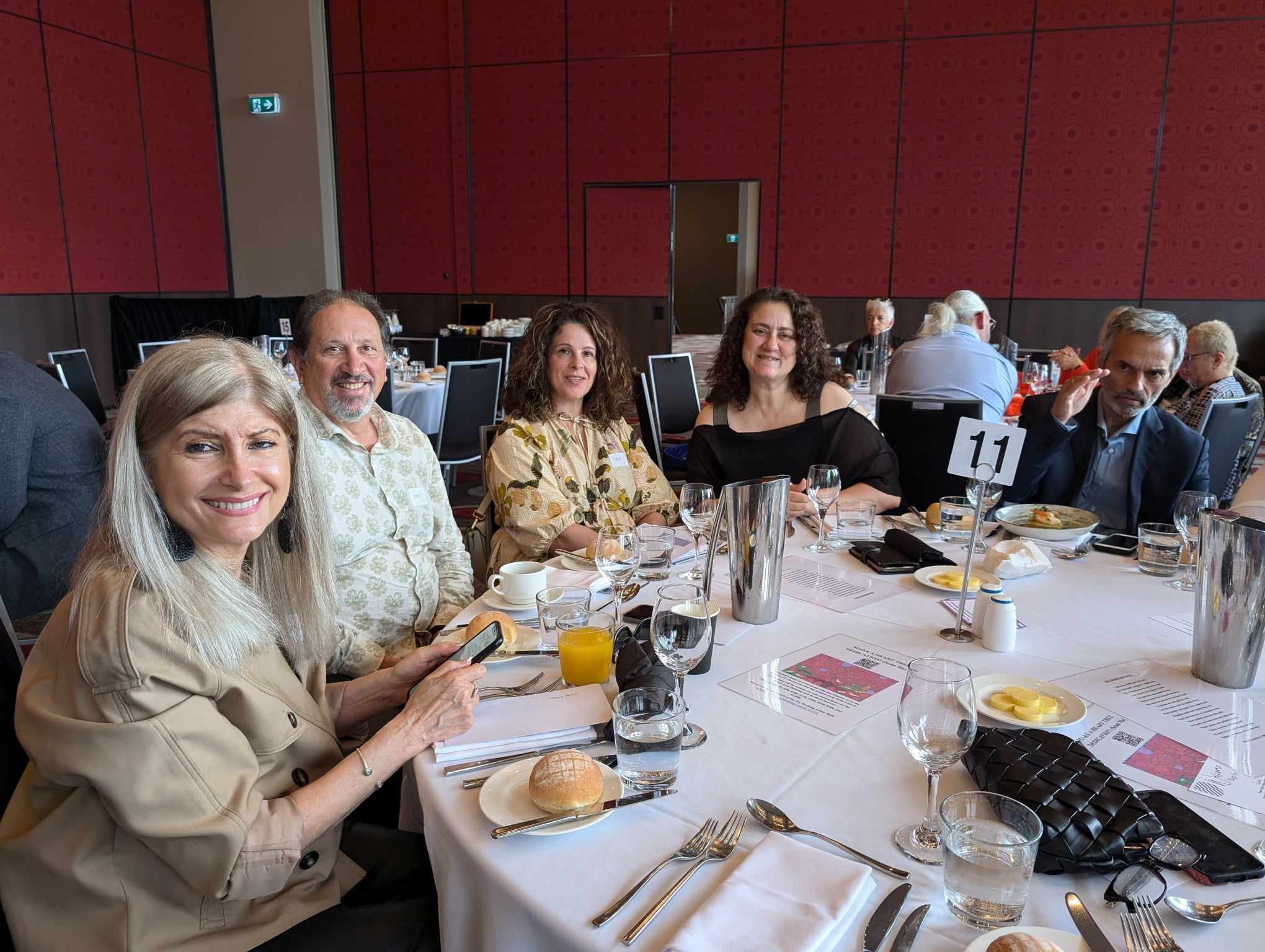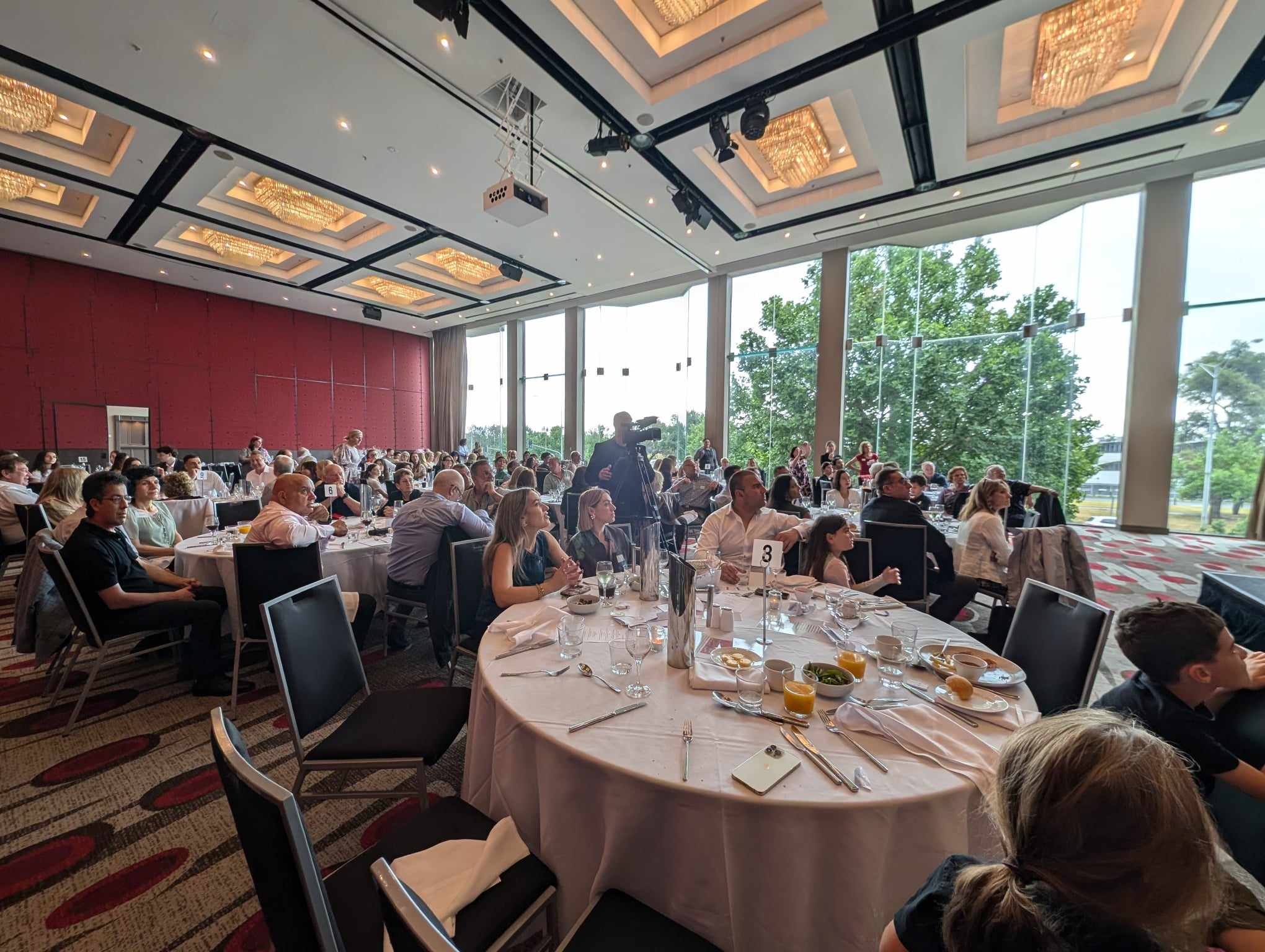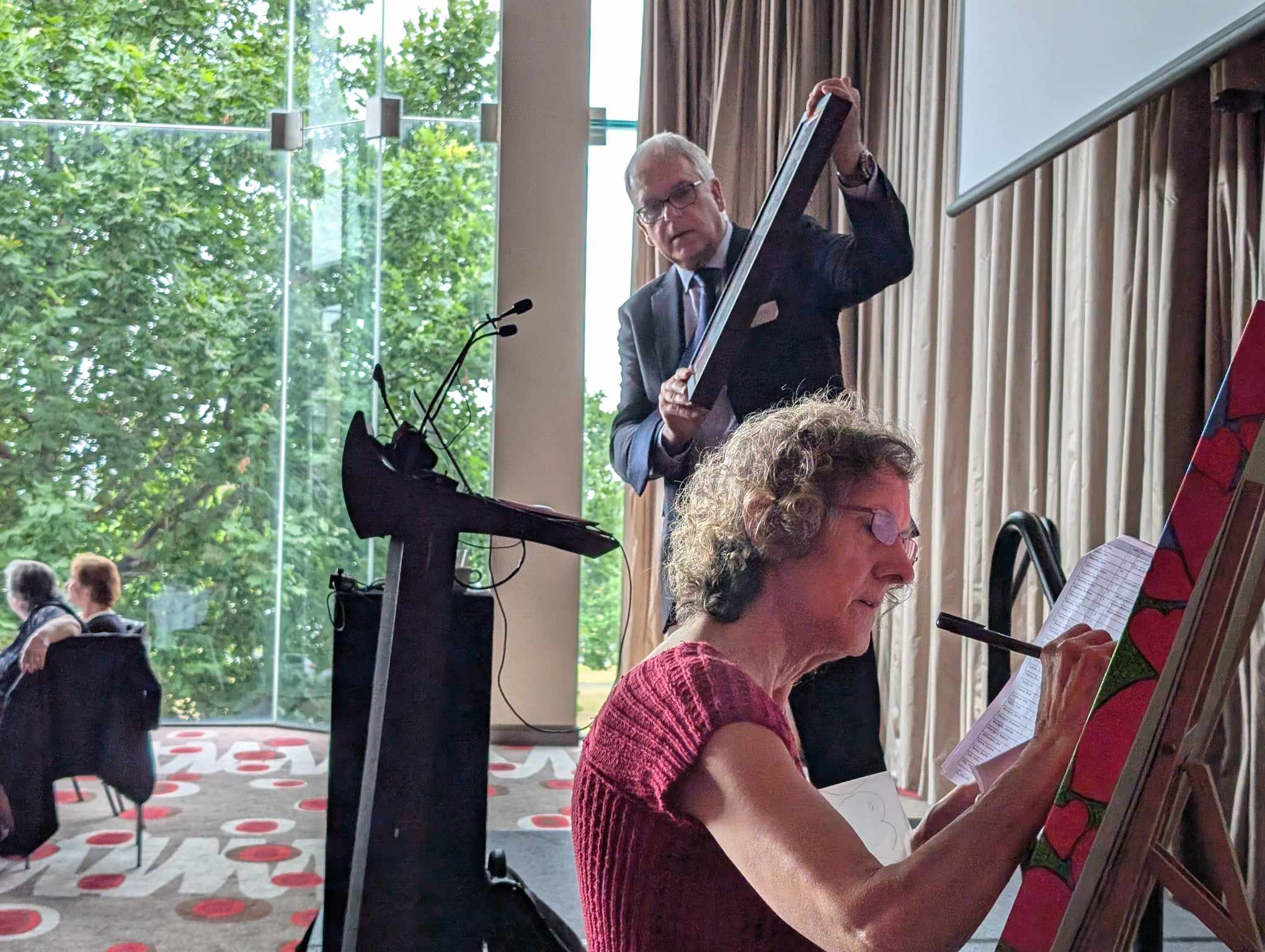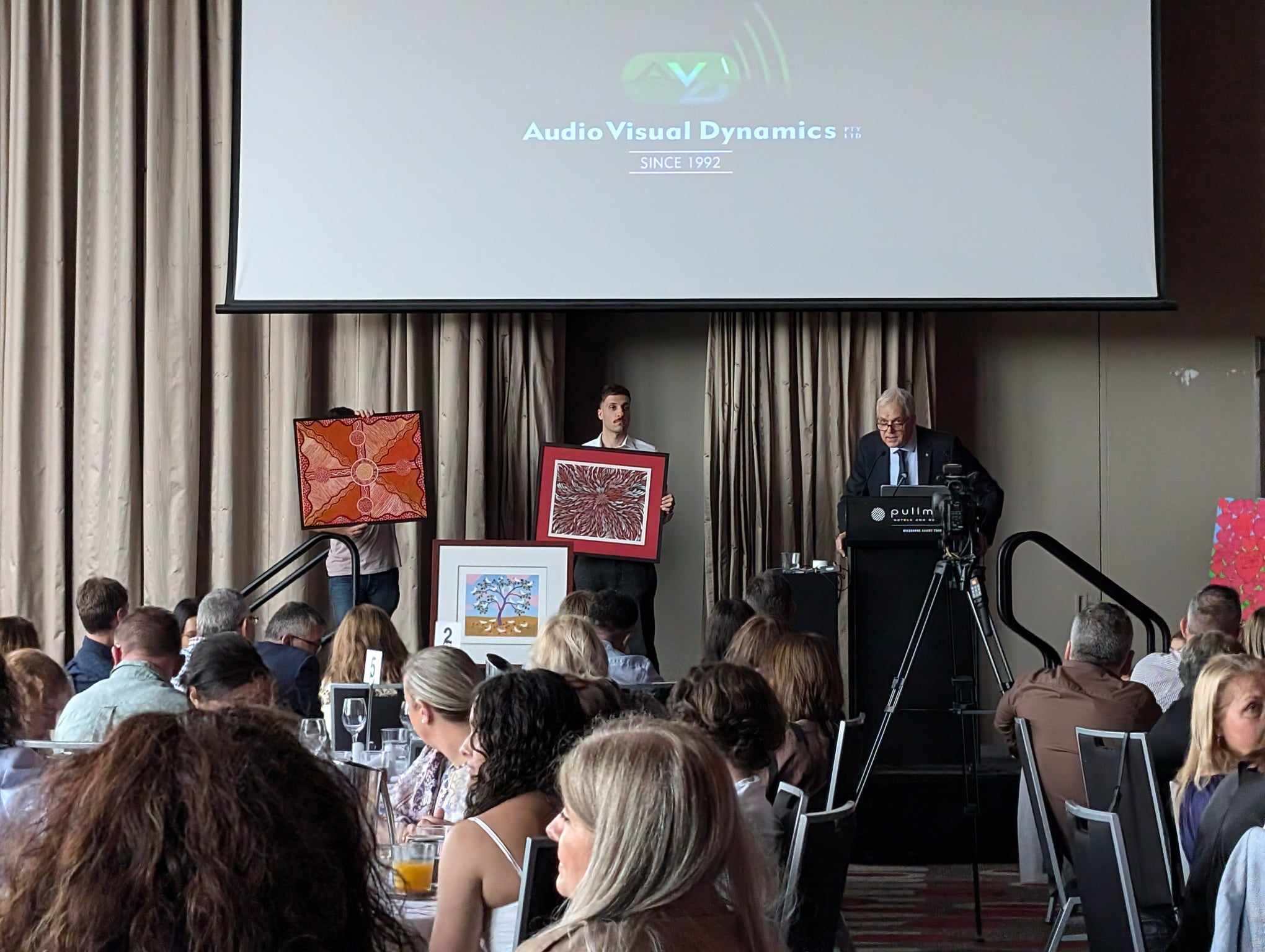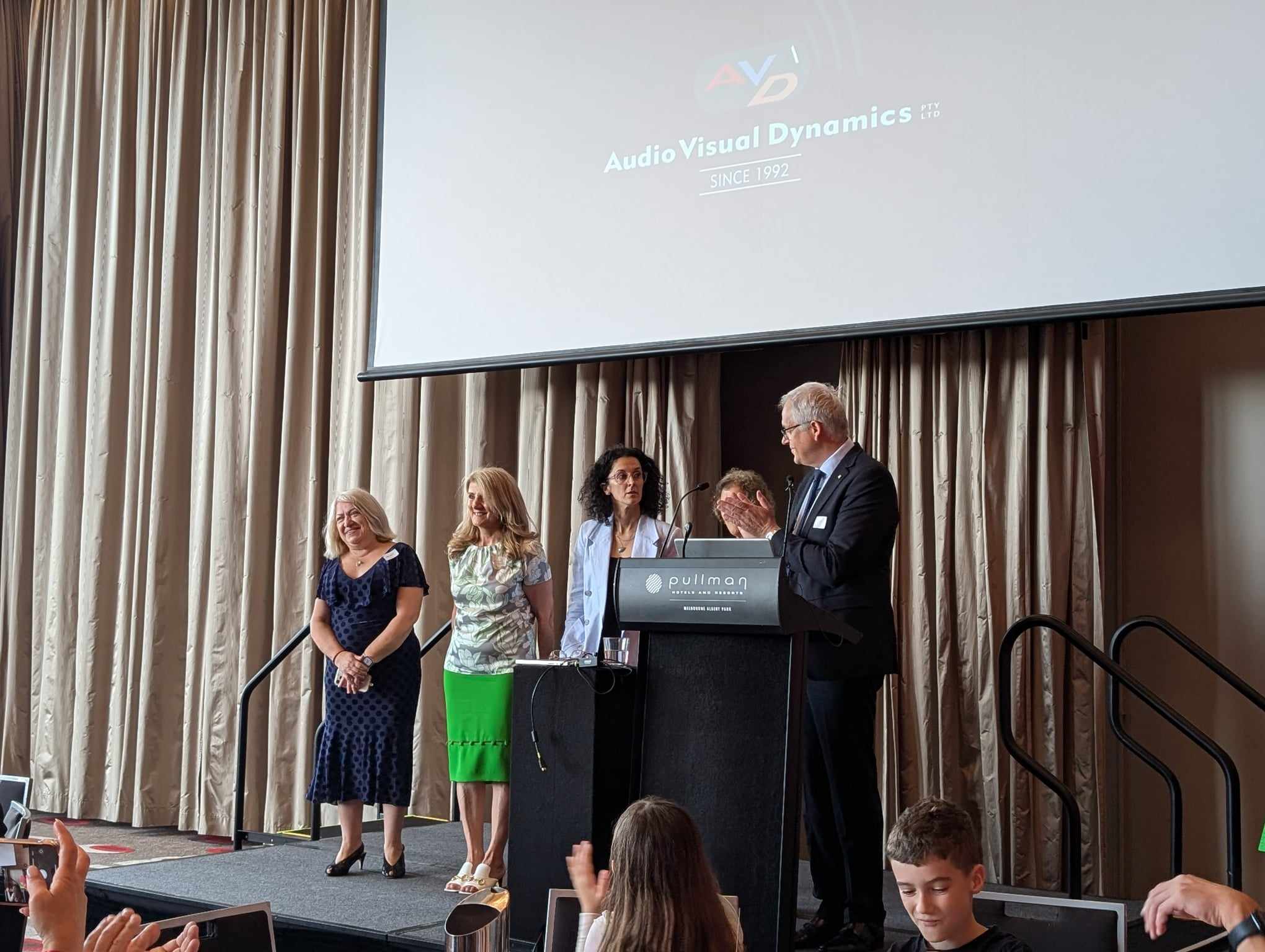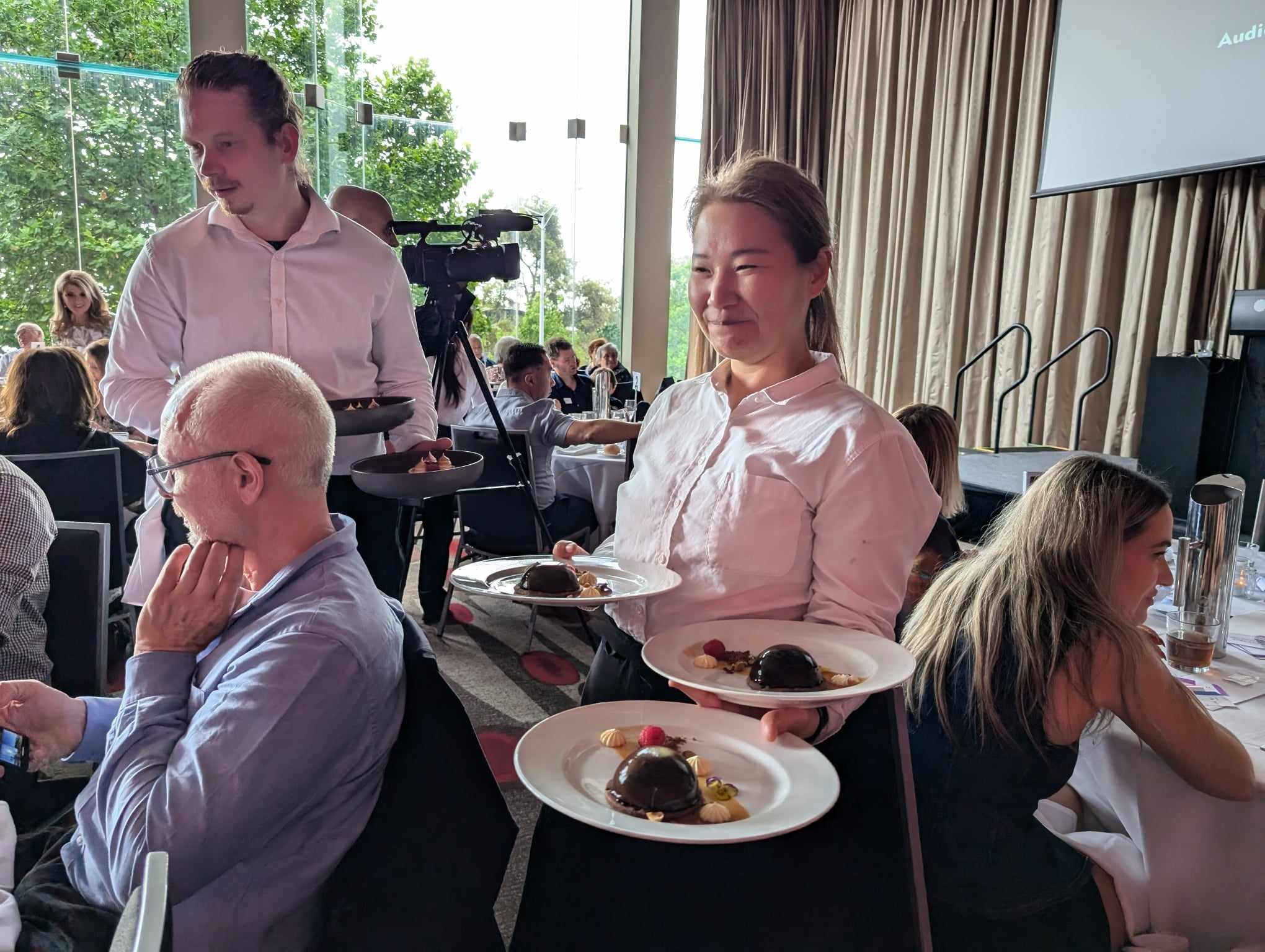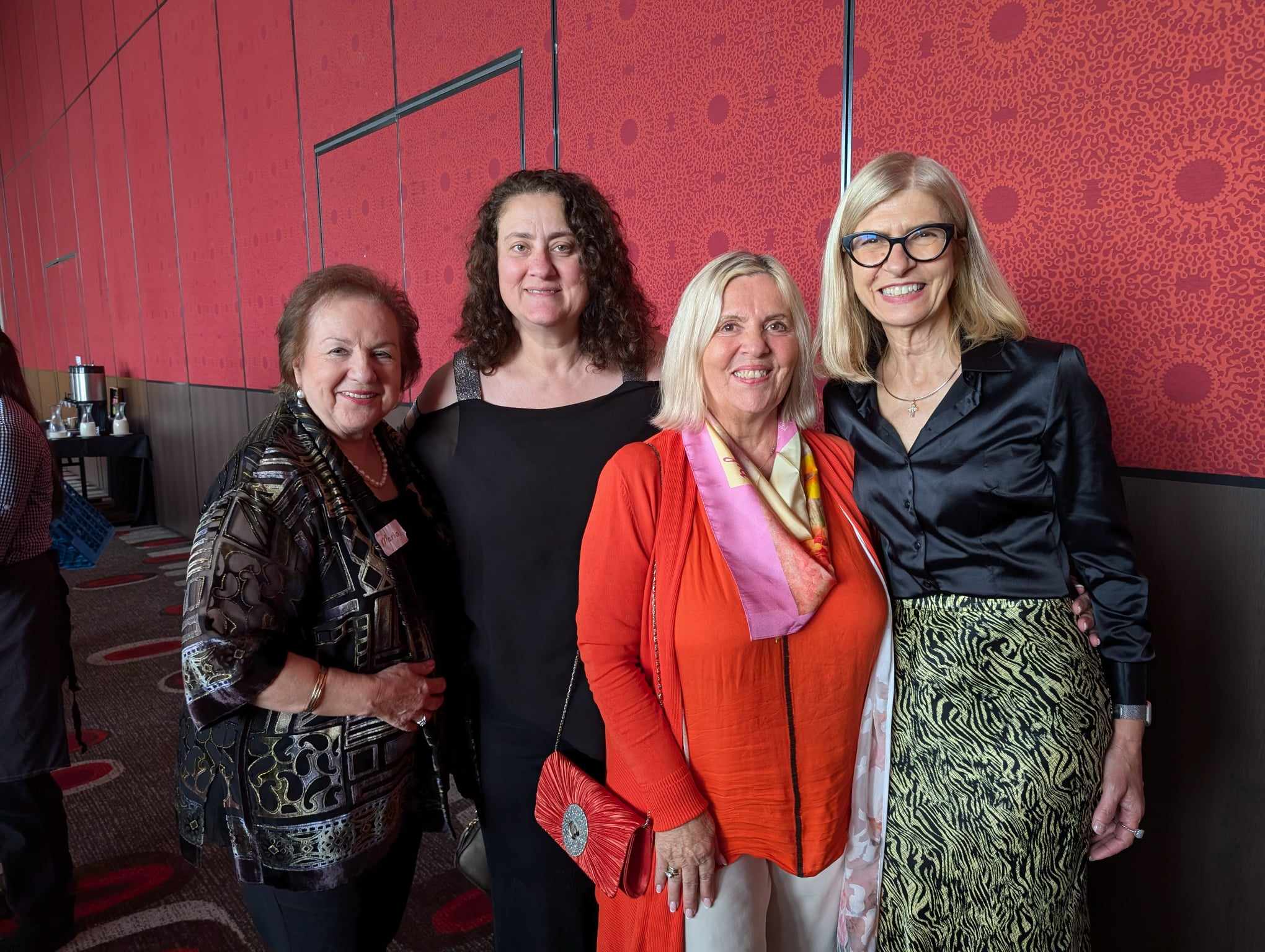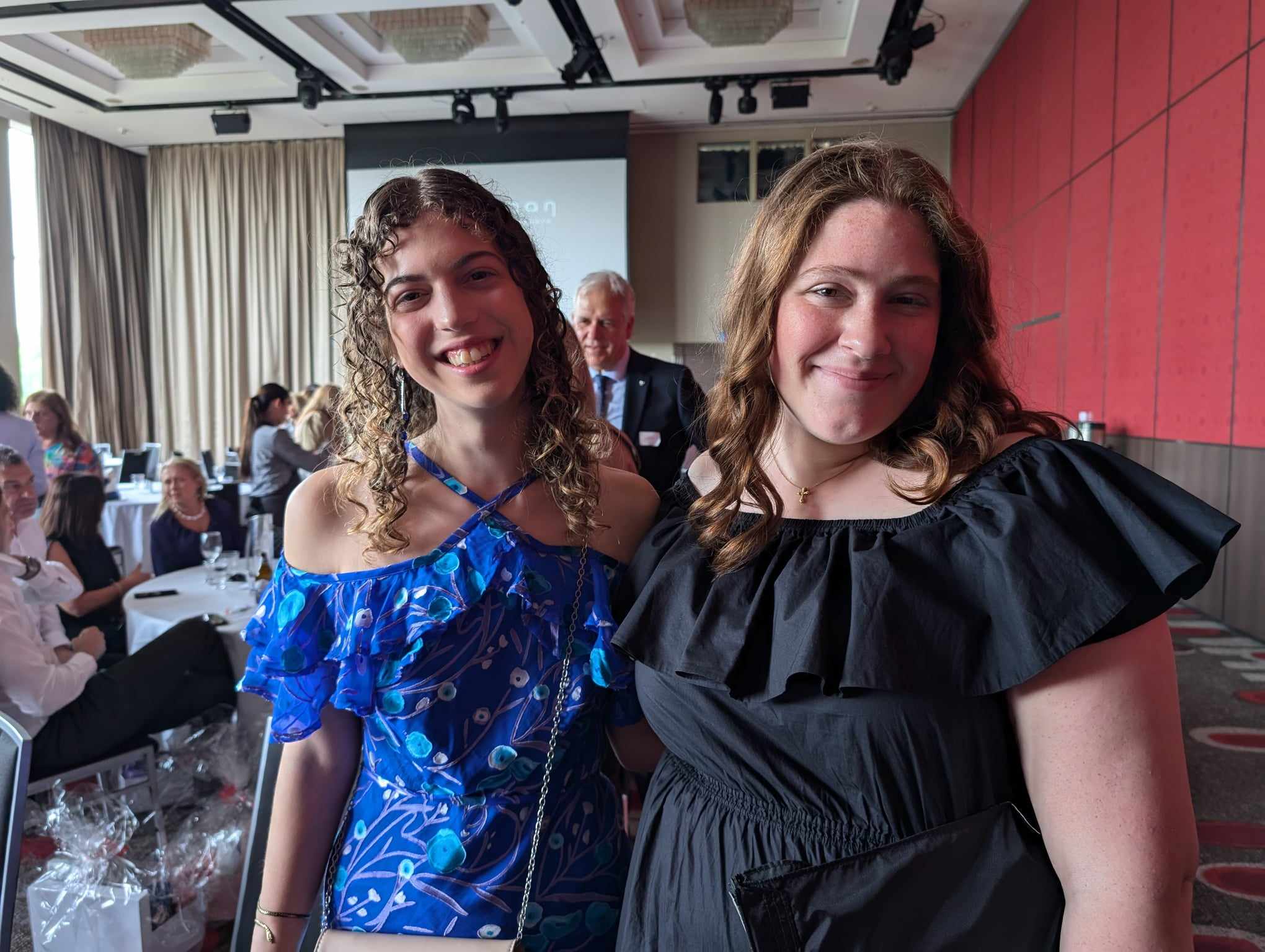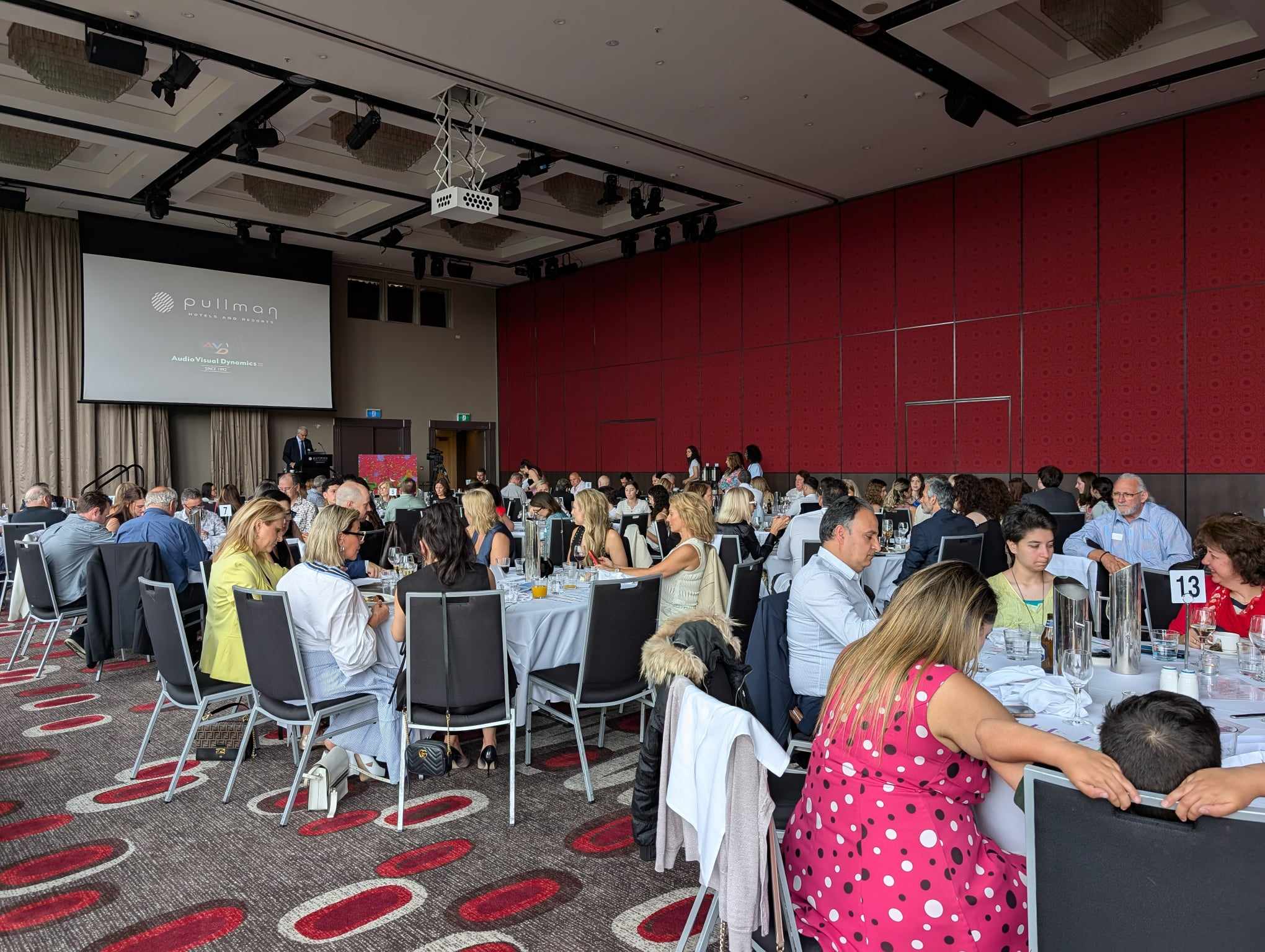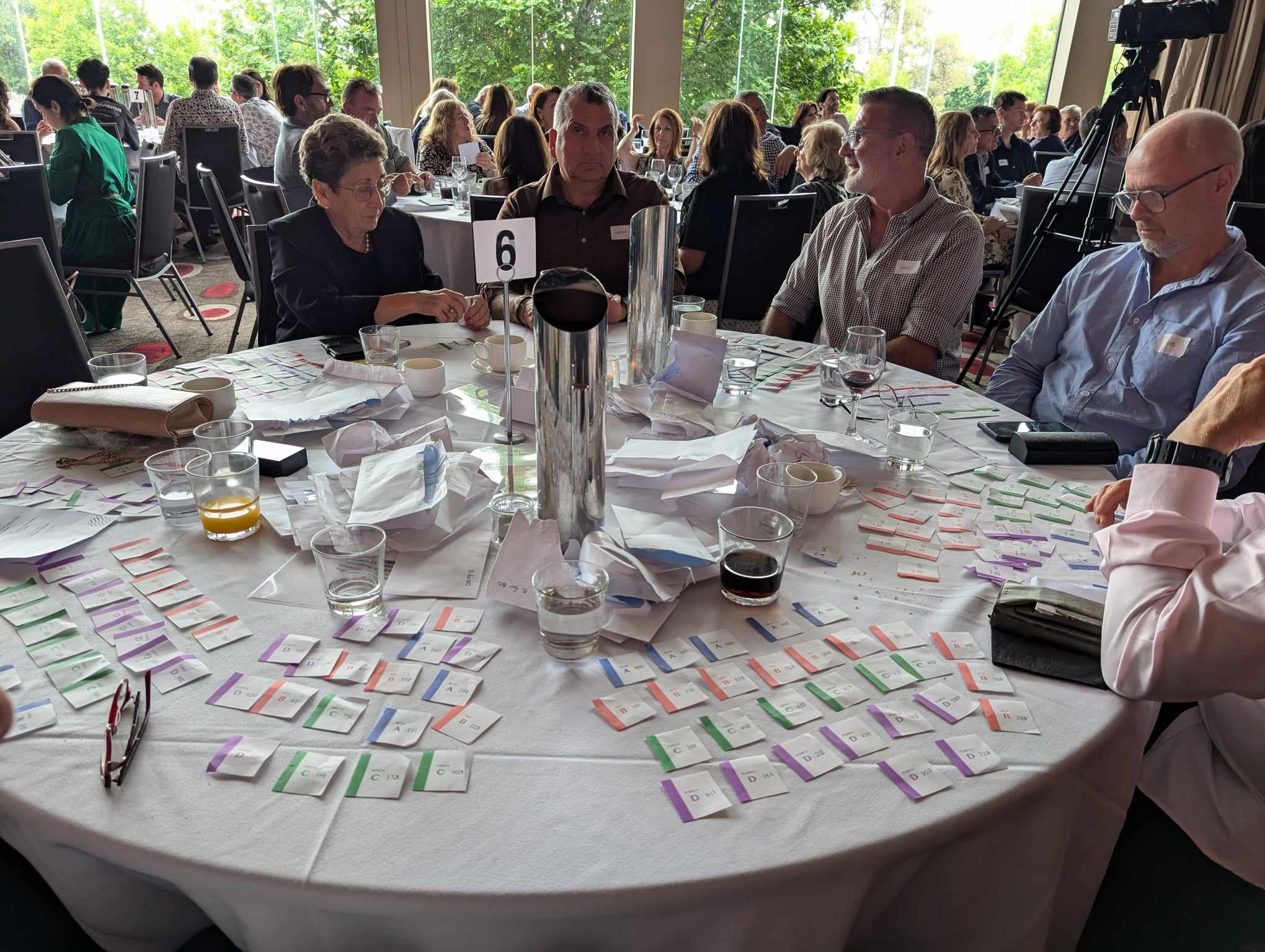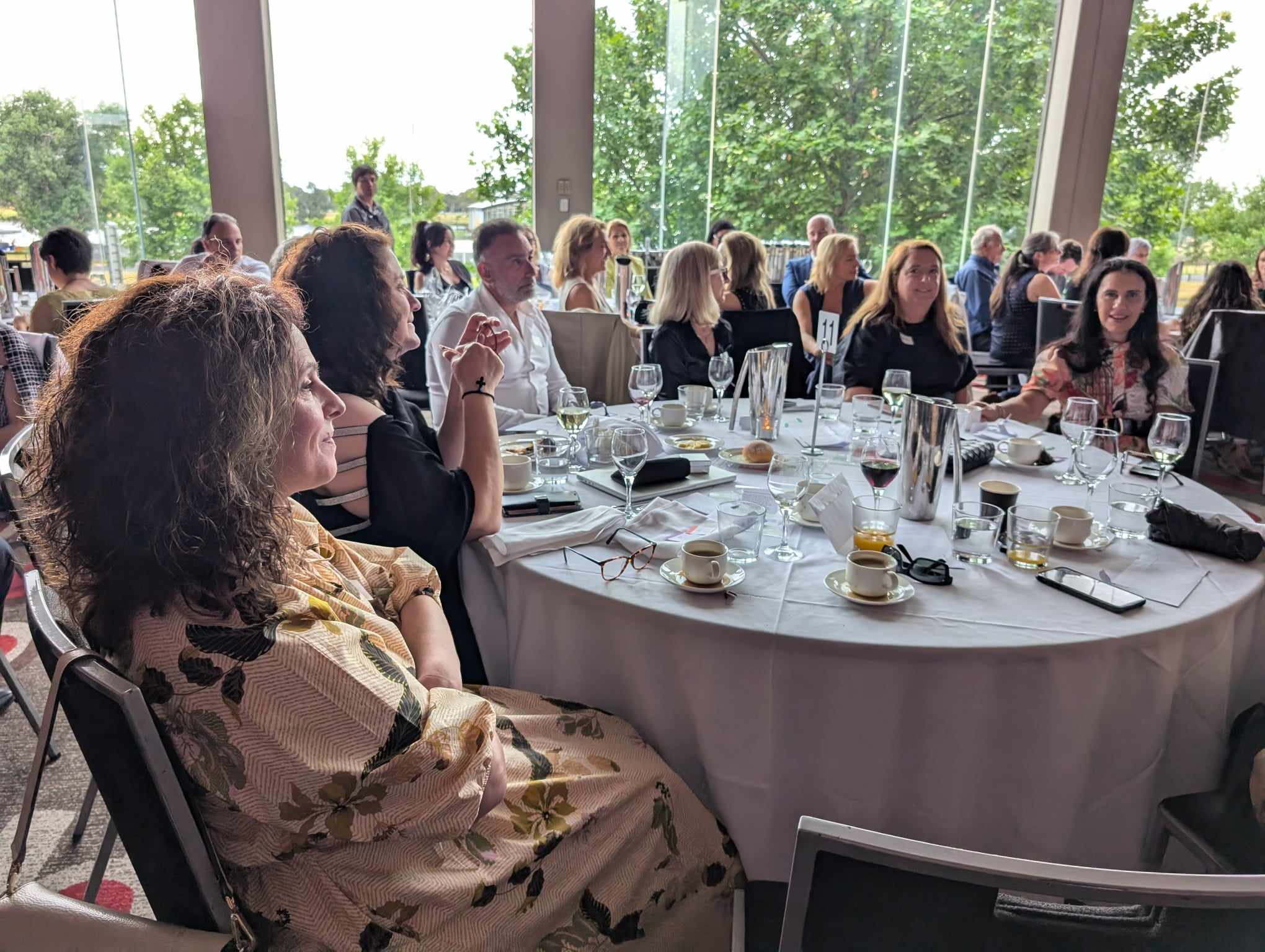Renowned immunologist Professor Vasso Apostolopoulos has revealed a heartbreaking truth: had her groundbreaking vaccine been made available to billions of women with early-stage breast cancer, their lives could have been saved.
Speaking at the Heart Tree Luncheon and fundraiser at the Pullman Hotel in Melbourne on Sunday, November 24, Professor Apostolopoulos detailed her decades-long research into vaccines.
“If you go to a pharmaceutical company, they want an active patent life to make money. Our study on the breast cancer vaccine took 27 years to complete, and patents run for 15 to 17 years,” she told The Greek Herald.
Studies show that $50 million is needed to bring this life-saving vaccine to market, and the government would fund half.
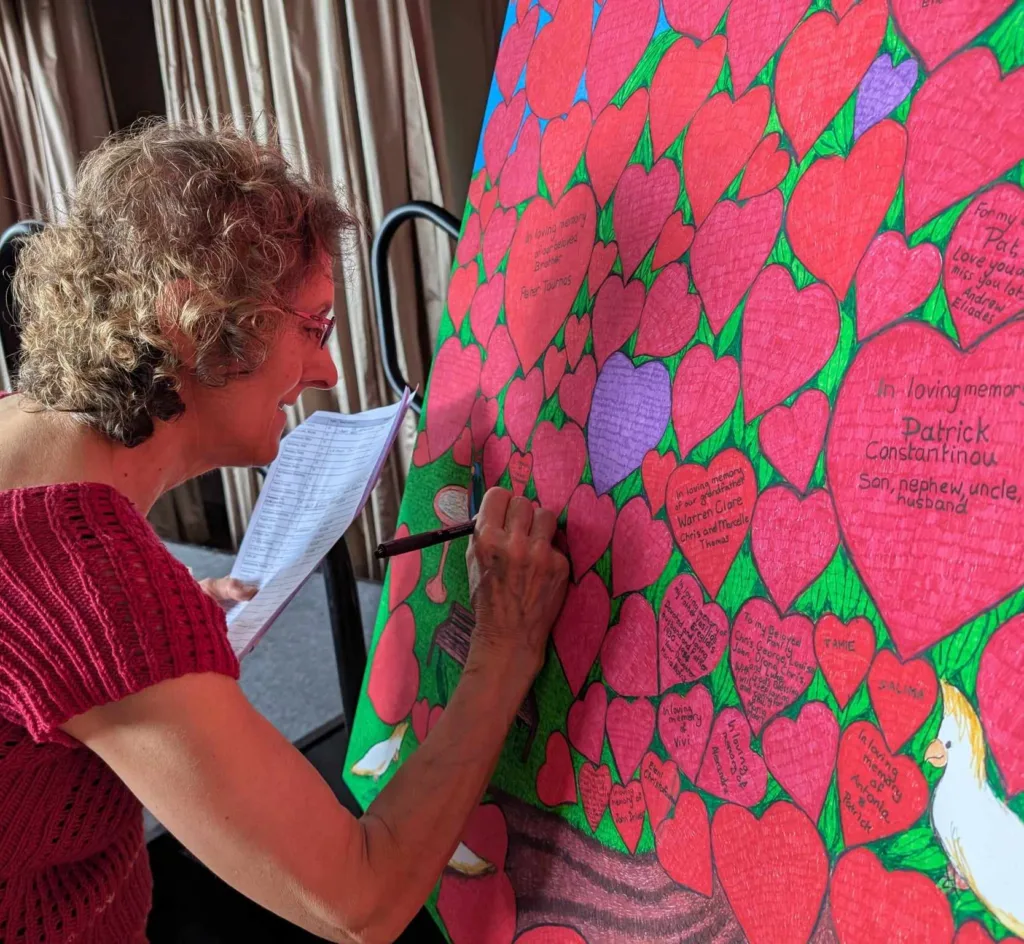
“We have an account, and we are accumulating some funds. But it’s a hurdle to raise that kind of money with small fundraising events,” she lamented. “I don’t have $50 million, and that is why vaccines are sitting in fridges.”
Artist, author, and philanthropist Betty Coracas, organiser of the Heart Tree Luncheon, is passionate about bringing cures to the public, one heart at a time. She invited guests to ‘dedicate a heart to a loved one who has cancer or to the memory of a loved one who has passed from cancer.’
The first heart was drawn for Patrick Constantinou, Coracas’ nephew, diagnosed with brain cancer in 2015 when aged 34.
“He lay in bed in his room and I created the heart tree to give him something other than a blank wall to look at,” she said, adding that he died at 37 years old.
Coracas first heard of Apostolopoulos’ breast cancer vaccine when she saw a front page featuring the 27-year-old researcher on the Herald Sun in 1997. It coincided with her search for a subject for the Archibald Prize.
Upon reading about the breast cancer vaccine Vasso was working on as a postdoc of the Austin Research Institute, she celebrated.
“I told my husband, ‘I found my subject’,” Coracas said.
Since then, the vaccine has shown great promise in trials. Yet, it remains shelved, a victim of bureaucratic hurdles, expired patents and insufficient funding.
“My sister has breast cancer. I want to see the vaccine available to her,” Coracas said.
“We have a vaccine that could save countless lives, but it is unavailable to the women who need it.”
Professor Apostolopoulos’ dedication to improving human health extends beyond cancer to critical areas such as cardiovascular disease, multiple sclerosis, and Alzheimer’s. Her work is a testament to the power of scientific innovation and the urgent need for greater investment in medical research.
RMIT University has joined forces with Professor Apostolopoulos. Professor Catherine Itsiopoulos, Executive Dean of the School of Health and Biomedical Science at RMIT, expressed excitement about the collaboration, highlighting the potential for groundbreaking “discoveries in diagnostics, therapeutics, and translational immunology.”
The Heart Tree Luncheon is a poignant reminder of the human cost of delayed medical advancements. By supporting initiatives like this, we can accelerate the development of life-saving treatments and bring hope to countless patients.
Amid the lovely food, auctions and raffles, those present enjoyed the angelic voice of up-and-coming 17-year-old Tabitha Bourakis.
The event was emceed by medical scientist Leo Eliades of the recently created Bags for Earth and Science Inc, formed with the dual purpose: To assist the environment by promoting tote bags from natural fabric and to fundraise in perpetuity for Science (medical research).
The public are encouraged to contribute funds to ensuring that the vaccine makes its way to the market in a recently started heart tree fundraiser.
